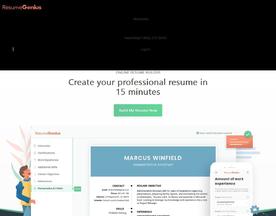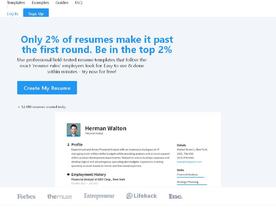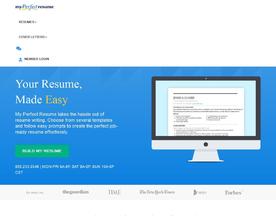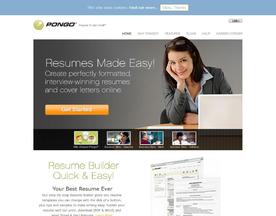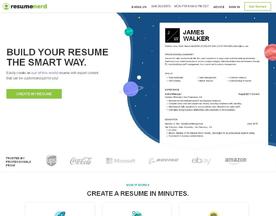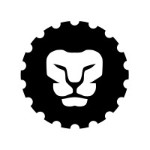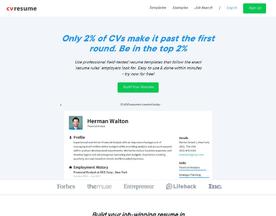What is a business owner resume ? A business owner resume highlights entrepreneurial experience, management skills, and achievements to attract partnerships or new roles.
A business owner resume is a document that outlines a small business owner’s professional experience, skills, and achievements. It is a crucial tool for entrepreneurs who are looking to transition into a new career or expand their business. Unlike a traditional resume, a business owner resume should highlight the unique challenges and accomplishments of owning and operating a business.

Contact information is the first section of a business owner resume. This section should include the entrepreneur’s name, phone number, email address, and physical address. It is important to ensure that the contact information is up-to-date and professional. The business owner resume summary should be a brief statement that highlights the entrepreneur’s skills, experience, and achievements. It should be written in a clear and concise manner and should be tailored to the specific job or industry.
Key Takeaways
- A business owner resume should highlight the unique challenges and accomplishments of owning and operating a business.
- Contact information and a professional resume summary are essential components of a business owner resume.
- Including a skills section, key achievements, and education and certifications can help showcase the entrepreneur’s qualifications.
Contact Information
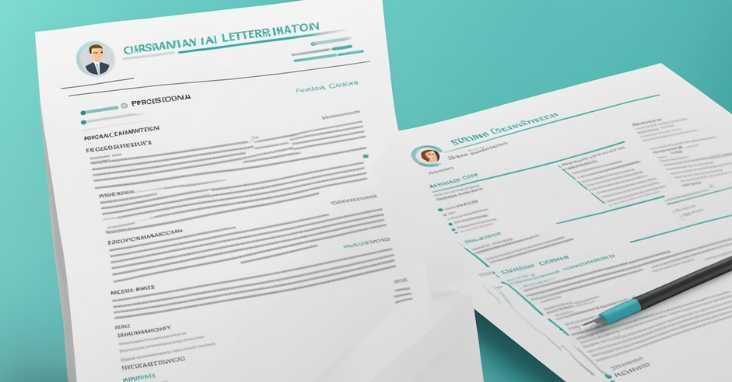
The contact information section of a business owner resume is a crucial component as it provides potential employers with a means of contacting the candidate. This section should be clearly visible and easy to read. It should be placed at the top of the resume, directly under the header.
The contact information should include the candidate’s full name, phone number, email address, and physical address. It is important to ensure that the email address used is professional and appropriate for a business setting. Additionally, including a link to the candidate’s LinkedIn profile can be beneficial as it provides employers with an opportunity to learn more about the candidate’s professional background.
When listing the physical address, it is not necessary to include the candidate’s full street address. Instead, listing the city and state is sufficient. This is especially important for candidates who are applying for positions in other cities or states.
It is also important to note that the contact information section should be updated regularly. If the candidate changes their phone number or email address, the resume should be updated accordingly.
Including a link to an external resource that has high authority on this topic, such as this article from The Balance Careers on How to Write a Business Owner Resume, can provide additional guidance on how to effectively format and include contact information on a business owner resume.
Resume Summary
A business owner resume summary is a brief statement that highlights their relevant skills, experience, and achievements. It is typically located at the top of the business owner resume and serves as an introduction to the rest of the document. A well-crafted summary can help a business owner stand out from other applicants and make a strong first impression.
Summary Statement
The summary statement should be concise and to the point, highlighting the business owner’s most important skills and accomplishments. It should be tailored to the specific job they are applying for and should include keywords that are relevant to the position. For example, a business owner applying for a marketing position might include phrases like “digital marketing expertise” or “proven track record of increasing sales through targeted advertising campaigns.”
Entrepreneurial Spirit
One of the most important qualities that a business owner can bring to a job is their entrepreneurial spirit. This includes a willingness to take risks, think creatively, and adapt to changing circumstances. A business owner resume should highlight their experience in starting and running a business, as well as any relevant skills like financial management, marketing, or sales.
When crafting a business owner resume summary, it’s important for a business owner to convey their vision and passion for their work. This can be done through a combination of words and formatting, such as using bold or italicized text to draw attention to key phrases. Additionally, including a link to an external resource that has high authority on the topic can help to demonstrate the business owner’s expertise and credibility.
Overall, a strong business owner resume summary can help a business owner to stand out from other applicants and demonstrate their value to potential employers. By highlighting their relevant skills, experience, and passion for their work, they can increase their chances of landing their dream job.
Professional Experience

The Professional Experience section of a business owner resume is one of the most important sections. It provides a detailed overview of the candidate’s work history and highlights their most significant achievements.
Leadership and Management
Experience in leadership and management roles is crucial for a business owner. This section should highlight the candidate’s ability to lead teams, manage operations, and drive revenue growth. It should also demonstrate their ability to develop and implement effective business strategies.
One example of effective leadership and management is demonstrated by John Smith, who led a team of 30 employees at XYZ Company. During his tenure, he implemented new processes that increased productivity by 25% and reduced costs by 15%. He also developed and executed a successful marketing campaign that resulted in a 20% increase in revenue.
Business Development
Business development is another critical aspect of a business owner resume. It should showcase the candidate’s ability to identify new opportunities, build relationships, and close deals. This section should also highlight their experience in negotiating contracts and partnerships.
For instance, Jane Doe has a proven track record of business development. She successfully negotiated a partnership with a major supplier, resulting in a 30% increase in revenue for her company. She also developed and launched a new product line that generated $1 million in sales during the first year.
Financial Management
Financial management is a critical skill for any business owner. This section should highlight the candidate’s experience in budgeting, forecasting, and financial analysis. It should also demonstrate their ability to manage cash flow and make sound financial decisions.
An example of strong financial management is demonstrated by Tom Johnson, who managed the finances of a startup company. He developed and implemented a financial plan that allowed the company to secure $2 million in funding. He also managed the company’s cash flow, resulting in a 20% increase in profitability.
Project Implementation
Project implementation is a crucial aspect of a business owner resume. This section should highlight the candidate’s ability to manage projects from start to finish. It should also demonstrate their experience in project planning, execution, and monitoring.
For example, Sarah Lee successfully managed a project to implement a new CRM system for her company. She developed a project plan, identified key milestones, and managed a team of developers to complete the project on time and within budget. As a result, the company was able to improve customer satisfaction and increase sales by 15%.
In conclusion, the Professional Experience section of a business owner resume is a critical component that showcases the candidate’s leadership, management, business development, financial management, and project implementation skills. It should be presented in a clear and concise manner, using formatting such as tables, lists, bold, and italic to convey information to the reader.
Key Achievements
A business owner resume should highlight their key achievements to demonstrate their ability to drive success and achieve results. This section should showcase the most impressive accomplishments that the business owner has achieved throughout their career.
One notable achievement that a business owner may include is how they grew their company’s revenue. For instance, they may have developed and implemented a new marketing strategy that resulted in a significant increase in sales. Another achievement could be the development of a new product or service that expanded the company’s offerings and increased market share.
A business owner may also highlight how they built and developed their team to achieve success. They may have implemented a new training program that improved employee performance and productivity, or they may have recruited top talent to join the company.
Achievements related to community involvement or philanthropy can also be included. For example, a business owner may have established a charitable foundation or partnered with a local non-profit organization to give back to the community.
It is important for a business owner to back up their achievements with data and measurable results. Including specific numbers, such as revenue growth percentages or market share increases, can help to demonstrate the impact of their accomplishments.
One resource that can be helpful for business owners looking to craft a strong business owner resume is Entrepreneur’s article on creating a winning business owner resume. This article provides tips and insights on how to showcase achievements and stand out to potential employers or investors.
Skills Section
When it comes to creating a business owner resume, the skills section is a crucial component that can make or break a candidate’s chances of being selected for an interview. This section should highlight the candidate’s relevant skills, both hard and soft, that are essential for the success of a business owner.
Business and Management Skills
The first subsection of the skills section should focus on business and management skills. These skills are essential for any business owner, as they are responsible for managing and leading their team, making critical decisions, and ensuring the success of their business. Some examples of business and management skills that should be included in this section are:
- Leadership skills
- Organizational skills
- Problem-solving abilities
- Decision-making skills
- Time management skills
- Negotiation skills
It is crucial to provide concrete examples of how these skills have been utilized in the past to demonstrate the candidate’s competency in these areas.
Interpersonal and Communication Skills
Interpersonal and communication skills are another critical aspect of a business owner’s skillset. These skills are necessary for building relationships with clients, employees, and stakeholders, as well as for negotiating and resolving conflicts. Some examples of interpersonal and communication skills that should be included in this section are:
- Customer service skills
- Interpersonal skills
- Communication skills
- Critical thinking abilities
Again, it is essential to provide concrete examples of how these skills have been utilized in the past to demonstrate the candidate’s competency in these areas.
Technical and Analytical Skills
The final subsection of the skills section should focus on technical and analytical skills. These skills are becoming increasingly important in today’s digital age, as technology plays an ever-growing role in the success of a business. Some examples of technical and analytical skills that should be included in this section are:
- Proficiency in software and computer programs
- Data analysis skills
- Marketing and advertising skills
It is important to note that the specific technical and analytical skills required for a business owner will vary depending on the industry and type of business. Therefore, it is essential to tailor this section to the specific job application.
In conclusion, the skills section of a business owner resume is a crucial component that should be carefully crafted to highlight the candidate’s relevant skills. By including concrete examples of how these skills have been utilized in the past, the candidate can demonstrate their competency and increase their chances of being selected for an interview. For further guidance on how to create a compelling skills section, visit The Balance Careers for tips and examples.
Education and Certifications

Education and certifications are important aspects of any business owner resume. They demonstrate the individual’s level of expertise and commitment to their field. When listing education and certifications on a business owner resume, it is important to include relevant information such as the name of the institution, degree or certification earned, and date of completion.
One example of a relevant certification for a business owner is the Certified Business Owner (CBO) designation offered by the International Association of Business Owners (IABO). This certification requires completion of a comprehensive training program and passing a rigorous exam. It demonstrates a business owner’s commitment to professional development and expertise in areas such as financial management, marketing, and strategic planning.
In addition to certifications, education is also an important factor to consider when evaluating a business owner’s qualifications. A degree in business administration, accounting, or a related field can provide a solid foundation for running a successful business. However, formal education is not always necessary, and many successful business owners have achieved success through hands-on experience and self-education.
When evaluating education and certifications on a business owner resume, it is important to consider the relevance of the information to the specific industry and role. For example, a business owner in the technology industry may benefit from certifications in areas such as cybersecurity or software development, while a business owner in the healthcare industry may benefit from certifications in medical billing and coding.
Overall, education and certifications can be valuable assets for a business owner resume. They demonstrate a commitment to professional development and expertise in specific areas of business. It is important to carefully evaluate the relevance of education and certifications when considering a business owner’s qualifications for a specific role or industry. For more information on certifications and education for business owners, visit Entrepreneur.
Additional Sections

In addition to the standard sections of a business owner resume, there are several additional sections that can help showcase a candidate’s qualifications and experience. These sections can provide valuable information to hiring managers and help a candidate stand out from the competition.
Professional Affiliations
Listing professional affiliations on a business owner resume can demonstrate their commitment to their industry and their desire to stay current with the latest trends and developments. This section can include memberships in industry associations, trade groups, or other professional organizations. It can also highlight any leadership roles the candidate has held within these organizations, such as serving on a board or committee.
One high authority resource for finding professional associations is the American Society of Association Executives (ASAE), which maintains a searchable database of over 7,000 organizations.
Conferences and Workshops
Attending conferences and workshops can be an excellent way for business owners to stay up-to-date on industry trends, learn new skills, and network with other professionals. Including a section on conferences and workshops attended can demonstrate a candidate’s commitment to professional development and lifelong learning.
This section can list the name and date of the conference or workshop, as well as any relevant sessions or presentations attended. It can also highlight any speaking engagements the candidate has had at these events.
Publications and Media
If a business owner has been featured in the media or has published articles or other content related to their industry, this can be a valuable addition to their business owner resume. This section can include links to any articles, videos, or podcasts in which the candidate has been featured, as well as any articles or other content they have authored.
One high authority resource for finding relevant media outlets is the PR Newswire, which provides a searchable database of news releases and media contacts.
By including these additional sections on their resume, business owners can provide hiring managers with a more complete picture of their qualifications and experience, and increase their chances of landing their next job opportunity.
Technical Proficiencies

A business owner resume should showcase their technical proficiencies to demonstrate their ability to manage and oversee the technical aspects of their business. Technical skills can range from proficiency in software and programming languages to graphic design and e-commerce.
When it comes to technical skills, a business owner should highlight their proficiency in various software and programming languages. This includes proficiency in Microsoft Office Suite, Adobe Creative Suite, and programming languages such as Python and Java. These skills are essential for managing and overseeing various aspects of a business, such as data analysis, marketing campaigns, and website development.
In addition to software and programming languages, a business owner should also demonstrate their graphic design skills. This includes proficiency in creating marketing materials, such as flyers, brochures, and social media graphics. A business owner should have a keen eye for design and be able to create visually appealing materials that effectively communicate their brand message.
E-commerce is another area where technical proficiency is crucial for a business owner. This includes proficiency in e-commerce platforms such as Shopify, WooCommerce, and Magento. A business owner should be able to manage their online store and ensure that it is running smoothly and efficiently.
Finally, a business owner should have a strong understanding of website development. This includes proficiency in HTML, CSS, and JavaScript. A business owner should be able to manage and oversee the development of their website, ensuring that it is user-friendly and optimized for search engines.
Overall, a business owner’s technical proficiencies are essential for the success of their business. By highlighting their skills in software and programming languages, graphic design, e-commerce, and website development, a business owner can demonstrate their ability to manage and oversee the technical aspects of their business effectively.
For more information on technical proficiencies for business owners, check out this article from Forbes: The Technical Skills You Need to Have as a Business Owner.
Resume Customization

When it comes to crafting a business owner resume, customization is key. A one-size-fits-all approach simply won’t cut it in today’s competitive job market. The following subsections will outline some key strategies for tailoring your resume to the specific job you’re applying for and using action verbs to make your experience stand out.
Tailoring Your Resume
The first step in customizing your resume is to carefully review the job description for the position you’re applying for. Look for keywords and phrases that match your skills and experience, and make sure to incorporate them into your resume. This will help your resume get past any automated screening tools and catch the eye of the hiring manager.
Another way to tailor your resume is to use a resume template that is specific to your industry or the type of job you’re applying for. This can help you highlight the most relevant information and make it easier for the hiring manager to see how your experience fits with the job requirements.
Using Action Verbs
Using strong action verbs is another important aspect of customizing your resume. Action verbs are words that describe specific actions you took in your previous jobs, such as “managed,” “created,” or “implemented.” By using these verbs, you can make your experience sound more active and dynamic, which can help you stand out from other candidates.
To get started, try looking at some resume examples online and identifying the action verbs that are commonly used in your industry. You can also use a resume builder tool that includes a list of action verbs to help you get started.
Overall, customizing your resume is an important part of the job search process for business owners. By tailoring your resume to the specific job you’re applying for and using strong action verbs, you can increase your chances of getting noticed by hiring managers. For more tips and resources on resume format and customization, check out this resume writing guide.
Cover Letter Strategy

A well-crafted cover letter can significantly increase the chances of a business owner landing their dream job. The cover letter is the first thing that a potential employer sees, and it should be used to highlight the business owner’s qualifications and skills. It is essential to tailor the cover letter to the job requirements and showcase how the business owner’s skills and experience align with the job description.
When writing a cover letter, the business owner should start by researching the company and the job they are applying for. This research will help them understand the company’s culture, values, and mission and how they can fit in. The cover letter should be personalized and address the hiring manager by name if possible. This shows that the business owner has taken the time to research the company and is genuinely interested in the position.
The cover letter should be concise and to the point, highlighting the business owner’s relevant experience and skills. It should not repeat what is already mentioned in the resume but rather complement it. The cover letter should also be free of errors and grammatical mistakes, as this reflects poorly on the business owner’s attention to detail.
It is also essential to use a confident and professional tone in the cover letter. The business owner should showcase their enthusiasm for the job and their willingness to contribute to the company’s success. They should avoid making exaggerated or false claims and instead focus on their strengths and accomplishments.
To help business owners craft an effective cover letter, there are many resources available online. One such resource is the Balance Careers website, which provides tips and examples of cover letters for different industries and job types. By following these tips and tailoring the cover letter to the job requirements, business owners can increase their chances of landing their dream job.
Frequently Asked Questions

What should be included in a business owner resume summary ?
In a business owner resume summary, it is important to highlight the most relevant skills and experiences that make you a strong candidate for the job. This includes your business background, industry expertise, and leadership skills. Additionally, it is important to mention any notable achievements or awards that demonstrate your success as a business owner.
How can I effectively describe my role in a business owner resume?
When describing your role in a business owner resume, it is important to focus on your leadership and management skills. This includes your ability to develop and implement business strategies, manage finances, and build relationships with clients and stakeholders. Additionally, it is important to highlight any specific achievements or successes that demonstrate your impact as a business owner.
What are the essential skills to highlight in a business owner resume?
The essential skills to highlight in a business owner resume include leadership, strategic planning, financial management, and communication. Additionally, it is important to highlight any industry-specific skills or expertise that are relevant to the job you are applying for.
How can I showcase my business ownership experience in a resume?
To showcase your business ownership experience in a resume, it is important to focus on your achievements and successes. This includes any notable accomplishments, awards, or recognition that you have received as a business owner. Additionally, it is important to highlight your leadership and management skills, as well as your industry expertise.
What is the best way to format a resume for a former business owner seeking employment?
The best way to format a resume for a former business owner seeking employment is to focus on your relevant skills and experience. This includes highlighting your leadership and management skills, as well as any specific industry expertise that is relevant to the job you are applying for. Additionally, it is important to keep the resume concise and easy to read, with a clear and professional format.
How do I translate my business owner achievements into a compelling resume profile?
To translate your business owner achievements into a compelling resume profile, it is important to focus on the impact that your accomplishments have had on the business or industry. This includes highlighting any notable achievements, awards, or recognition that you have received as a business owner. Additionally, it is important to focus on your leadership and management skills, as well as your industry expertise and ability to drive results.
For more information on writing a compelling business owner resume, check out this article.


